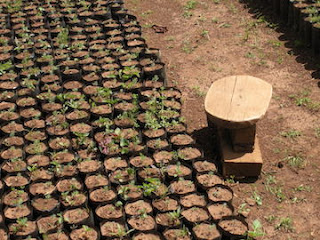Latest in linguistics: "Arabi Juba: un pidgin-créole du Soudan du Sud", by Stefano Manfredi
Congrats Stefano, very well done! The book is now available on the catalogue of Peeters Publishers . Summary: Le présent ouvrage constitue la première grammaire descriptive du pidgin-créole à base lexicale arabe nommé árabi júba (fr. arabe de Juba ). À ce jour, l' árabi júba est à la fois la principale langue véhiculaire du Soudan du Sud et la première langue vernaculaire de Juba, la capitale du pays. Bien que cet idiome fournisse un important élément d'identification nationale, il ne fait l'objet d'aucune planification linguistique par l'État. Cette description est destinée à délimiter une série de catégories grammaticales susceptibles de donner lieu à des comparaisons typologiques fructueuses et elle est développée en conformité avec une approche empirique basée sur l'analyse des données originales collectées sur le terrain. L'étude adopte une perspective de synchronie dynamique qui prend en considération un ensemble de facteurs sociaux intervenan...

